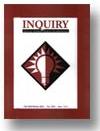Critical Thinking: Importance and Benefits � PAGE \* MERGEFORMAT �3�
Critical Thinking: Importance and Benefits
Learning Team A
Delores Oniyide-Smith
MGT 350
July 5, 2010
Professor Montgomery Beyer
Our basic concept of critical thinking is, at root, simple. We could define it as the art of taking charge of your own mind. Its value is also at root simple: if we can take charge of our own minds, we can take charge of our lives; we can improve them, bringing them under our self-command and direction. Of course, this requires that we learn self-discipline and the art of self-examination. This involves becoming interested in how our minds work, how we can monitor, fine tune, and modify their operations for the better. It involves getting into the habit of reflectively examining our impulsive and accustomed ways of thinking and acting in every dimension of our lives.
Critical thinking is that mode of thinking about any subject, content, or problem in which the thinker improves the quality of his or her thinking by skillfully analyzing, assessing, and reconstructing it.
Critical thinking is self-directed, self-disciplined, self-monitored, and self-corrective thinking. It presupposes assent to rigorous standards of excellence and a conscious command of their use. It entails effective communication and problem-solving abilities, as well as a commitment to overcome our native egocentrism and sociocentrism (Wesphal, 1999)
Personal experience with critical thinking
Several years ago, I was offered an excellent, well-paying job in the nonprofit industry. I was tremendously excited as my life's work involves helping those in need. On the day of my first interview, I arrived a little early so that I could familiarize myself with the area and the building. When I exited my car, a lady stopped me to have a friendly chat. She asked if I would be...


